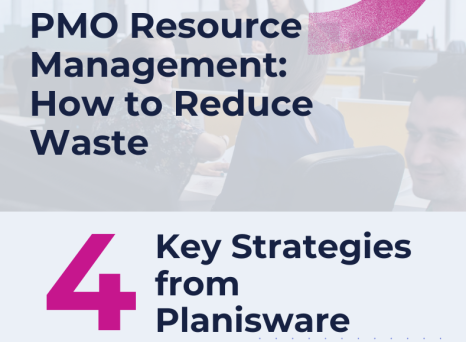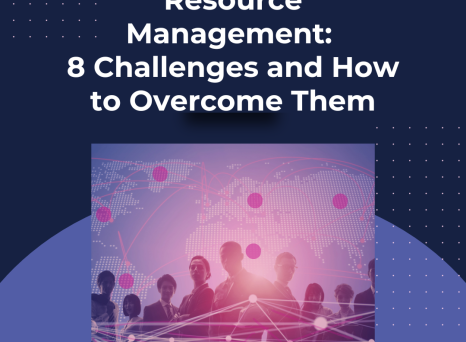Resource management represents the art and science of allocating the right resource to the right project at the right time. This is the case for the project manager or the resource manager. But at the PMO level resource management is a different ball game. A PMO may sometimes involve itself in allocating the right resources to the right project. But a PMO does more than that. In other words, PMOs are involved at the macro level and project managers or resource managers are involved at the micro level.
Resource allocation and management is one of the many challenges project managers face daily. And, PMOs provide a lot of heavy artillery and supplies to them so that they can manage efficiently their resources and ensure the delivery of projects on-time and within budget. Metaphorically speaking, A PMO is the equivalent of “the Oracle of Delphi” in the realm of project management
Instead of directly managing projects, Project Management Offices provide expert assistance and specialized services in the form of mentoring and coaching. It provides oversight and guidance for project estimates, resource allocations, planning and controlling and developing and maintain relationships.
Large multinational companies often have a mature PMO with several roles and responsibilities related to human resource management concerning projects.
From a resource management lens, A Project Management Office:
- Identifies and audits resources according to skills sets. And accordingly classifies them or creates a database.
- Develops processes, methodologies and best practices for assigning resources.
- Manages a staff of project planners and controllers, project managers and resource managers within the PMO.
- Creates and offers training programs and professional development pathways. It also conducts performance evaluation.
- Builds and sets up project management softwares and collaboration tools for project teams.
(Disclaimer – this list is not an exhaustive list but provides a brief idea)
When it comes to resource management PMOs have four main objectives:
1: Evaluate the competencies of project managers
PMOs evaluate the competencies of project managers to not only recruit the right candidates but also to improve the in-house project manager's professional development. Competency assessment helps create effective training materials and programs ensuring that that the projects are managed by capable people. Thus, in turn, ensuring that projects are delivered on time and within budget and therefore reducing project failure rates.
2: Launch and manage professional development initiatives
PMOs create professional development programs that reflects project requirements, the needs and aspirations of team members and the overall objective of the organization. So, they not only create training and skill development programs for project teams but also reward them in ways that reinforces success on projects. They create attractive career paths to attract and keep the high performers.
3: Pen down realistic job descriptions that spells out every one's roles and responsibilities
This part is key as it allows project managers or resource managers in the respective departments to assign the right resources to the right project at the right time! Proper definition of roles and responsibilities not only makes recruitment easy but also makes sure that talented project practitioners are retained and working on challenging projects that fulfils them professionally. Which in turn leads to efficient progress of projects and their on-time delivery, aligned to the company's strategic goals.
4: Evaluate and determine the organizational capacity
PMOs map-out resources by finding who they are and where they reside on the organizational chart. To get a handle on capacity the PMO performs a resource inventory, analyses any resource shortages or overloads and accordingly recommends appropriate actions to optimize resource utilization in various projects across different departments in the organization.
(Disclaimer – again the above list is not exhaustive. Feel free to add you 2 cents in the comments)
Human resources management is very important for delivering projects. Without them projects are just ideas in the air. Therefore, PMOs go to great lengths for better resource allocation and management even though they don't necessarily manage projects directly.


